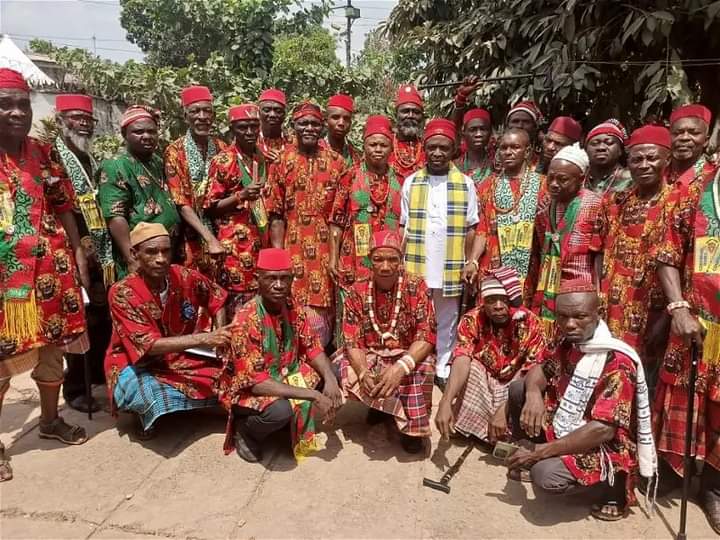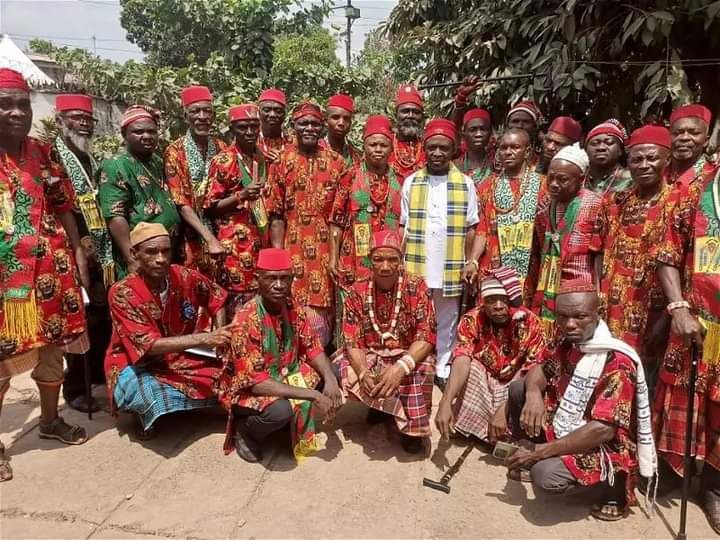
Elders from the Eastern Region of Nigeria converged on the gravesite of Nnamdi Kanu’s parents in Umuahia, pleading for his release. Their prayerful vigil at the gravesite marked a spiritual dimension to the ongoing efforts to free the IPOB leader from detention. The elders expressed their belief that the prayers would strengthen the struggle for Kanu’s freedom and justice for all the people of the region.
The elders offered passionate prayers for a favourable outcome at Kanu’s next court hearing on February 26th, believing that divine intervention would play a role in securing his release. The prayers were heartfelt and sincere, reflecting the elders’ deep concern for Kanu’s well-being and their hope for justice.
As the elders offered prayers, they dressed in traditional Igbo attire known as Isi agu, or “lion’s head,” a symbol of strength and power. The elders’ sartorial choice signified their resolve to fight for Kanu’s release.
Following the prayers, the Concerned Elders of Old Eastern Region’s National Chairman, Chief Innocent Orji, spoke to the press about the visit’s significance. He explained that the elders came to mark the fourth anniversary of the deaths of Kanu’s parents, HRM and Lolo Israel Kanu, who passed away after a tragic incident in which security operatives raided their palace. The incident left the couple deeply traumatized, leading to their eventual deaths.

Chief Orji explained further that the elders sought divine intervention due to their belief that the forces behind Kanu’s continued detention were more than simply human. They believed that dark and powerful forces were at play, and only divine intervention could set things right.
He said that “Kanu is not a terrorist but a freedom fighter” contrary to allegations by the Federal Government.
Chief Orji further said that Kanu had the full support of the entire people of the Old Eastern Region in his agitation for the liberation of the oppressed people of the region.